Are you getting torn between the need to accept your loved ones as they are and the desire to change them? Do people really change? And if yes, then how?
Do you frequently end up apologizing for your behavior to your colleagues and loved ones? Or do you have a special someone who repeatedly vows and invariably fails to change their certain habits? In either case, you must know how difficult it is to change a full-grown adult who is quite set in their ways. Fret not, it is not impossible to change or improve certain aspects of our personality, specific behavioral traits, habits, and attitudes, if we dedicatedly put some effort into the process.
So do people change? Yes, people can change, but not always, and certainly not everyone. If you are trying to modify specific aspects of your personality or meaning to change a person for their betterment, carefully go through all the points that we have covered.
Can Someone Change Their Personality?
When you hear the word “Personality”, you tend to think of a set of characteristics that are attached to an individual. You can’t be blamed if you assume that these traits will be consistent across the realms of place and time.
People’s personalities often give us a fair idea of how they are likely to behave or react in certain situations. Your teenage nephew Bob who is childlike, hyperactive, and nothing short of a menace, can never become a mature and sensible adult, right? You can be wrong. Do people really change with time?
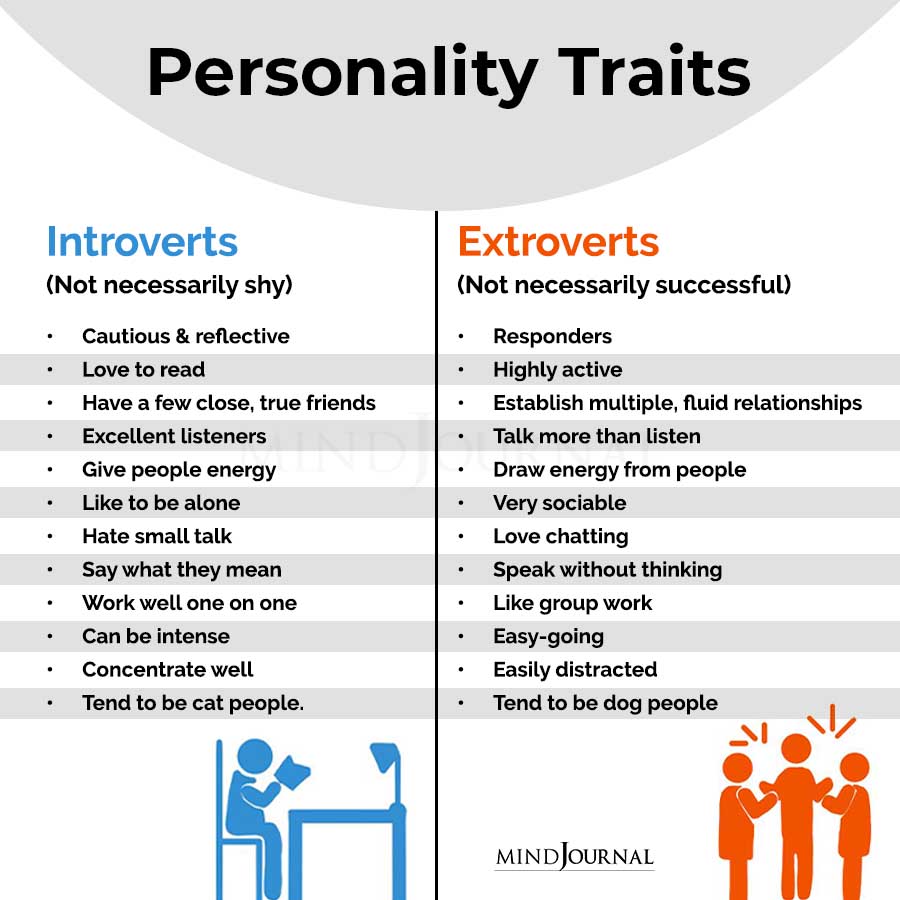
According to a study, our personality can evolve over our entire lifespan, as we become more emotionally stable, warm, and good with external stressors, with age.
So, now the question is do people really change if they have personality disorders like narcissism or psychological challenges such as depression, anxiety, etc.? Is changing people or altering their thinking process possible over a relatively short period of time through treatment? Let’s find more on that with the help of the “Big Five”.
The Big Five Personality Traits: Do People Really Change?
According to mental health experts, the followings are the most important 5 traits that help us to uncover insights into an individual’s personality:
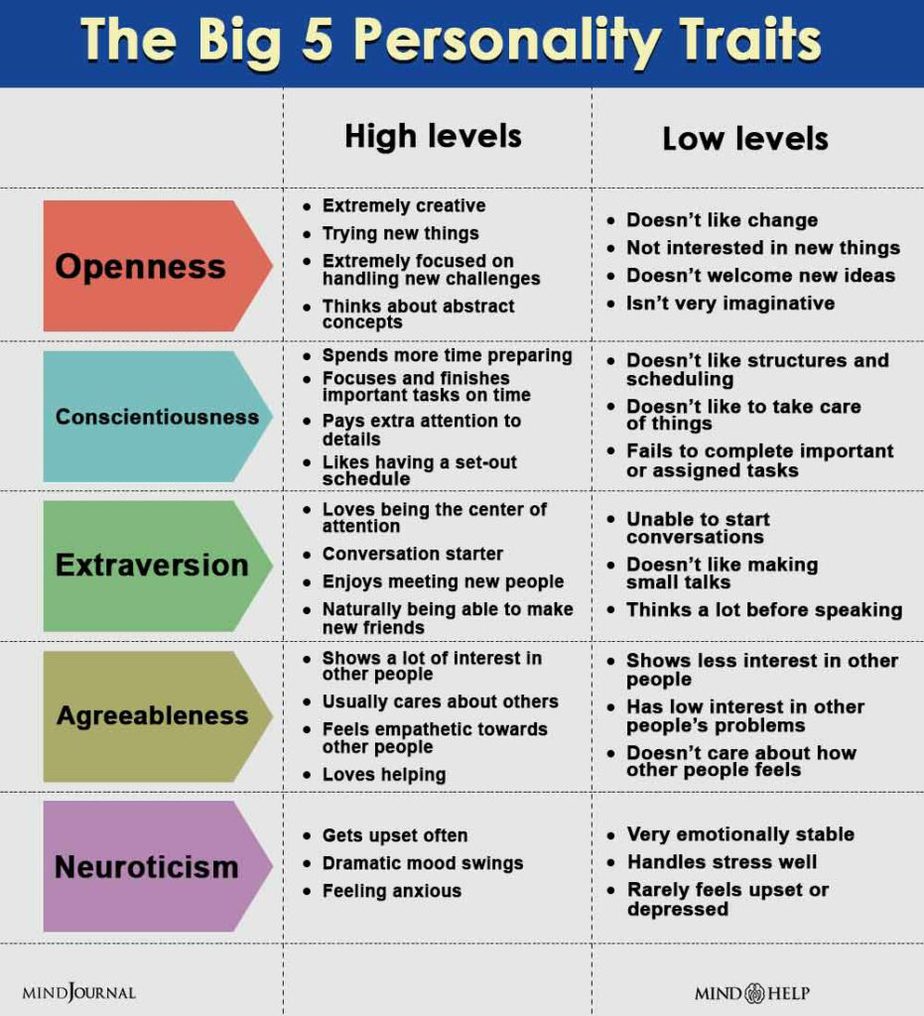
- Emotional Stability as opposed to Neuroticism (Instability)
- Extroversion as opposed to Introversion
- Openness (to experience) as opposed to Unconventionality
- Agreeableness as opposed to Antagonism
- Conscientiousness as opposed to Disinhibition
A study was conducted focusing on these 5 parameters and involving various forms of medical interventions like medications and different types of psychotherapy. The aim was to find the answer to the question of do people really change over a brief period with the help of treatment? You will be surprised by the revelations they found. Take a look:
- Average changes in personality can be brought on by targeted treatment.
- Changes that occurred as a result of intervention stayed consistent or improved over time.
- Emotional stability and extroversion were the most responsive traits, while openness was the least.
- A mix of various treatment strategies, especially different psychotherapies were conducive to positive changes in personality.
- Treatments for anxiety disorder and personality disorder yielded the best results, while treatments for eating disorders and substance abuse didn’t fare so well.
- Medical intervention needs to last for a minimum period of 4 weeks to significantly impact personality.
Why Do People Resist Change?
Have you been patiently waiting for someone to come around and mend their ways? Maybe, after keeping your life on hold for so long, your hope and optimism are waning, and you find yourself asking do people ever really change? If so, please bring your attention to the points that we are going to discuss next:
1. Intention Backed By Effort: Missing
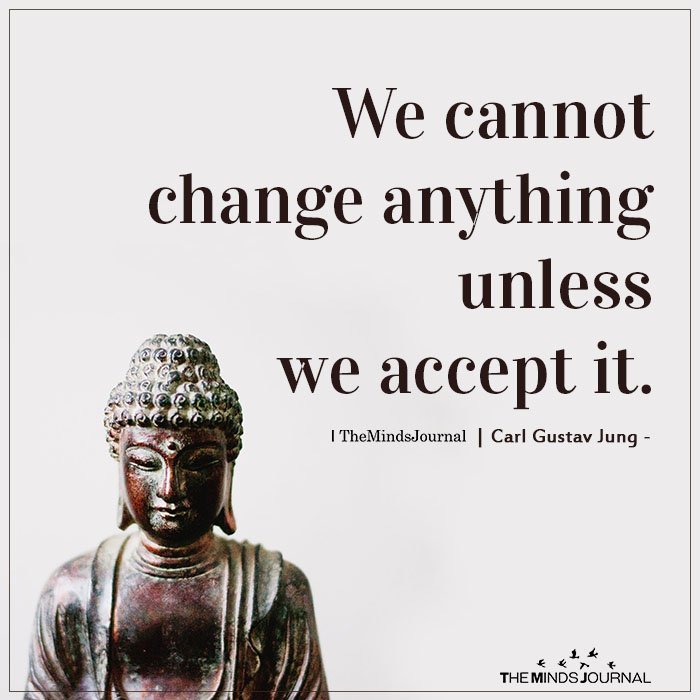
Whether you want someone else to change or your changing endeavor is self-targeted, you must realize a lasting change can only take place with a strong resolution and commitment. The person needs to willingly try to make a difference, take better decisions, and stick to their goals, for any treatment or strategy to work. You cannot simply:
- Ask or expect someone to change if they don’t want to
- Say you will change and go around making poor life choices
- Believe that someone is going to change without any visible action on their part
2. Patience: Needed
Take, for example, you are trying to be less people-pleasing. Now what you do next is you write down what are the reasons behind this compulsion, what dysfunctionalities lie in your childhood days, and how you can do better. You speak to a therapist or a support group and chalk out a strategy to improve your confidence and self-esteem. But will you get overnight results?
Chances are slim. Most likely you’ll have to experiment with several self-help tools, run multiple trial and error methods, and consciously steer clear from your old behavioral patterns for a considerable amount of time before you could see some improvements.
Do people really change? They can, but, when hoping for a significant transformation from someone else, remember this process, and don’t let yourself expect immediate success.
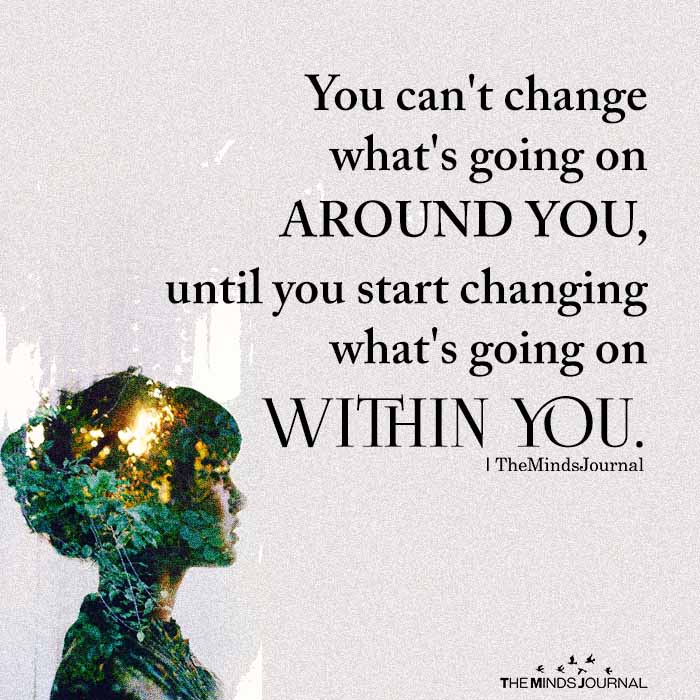
Read: 8 Remarkable Psychological Benefits Of Making Your Bed
3. It’s Not Linear
Even with the strongest determination and efforts, it is quite natural to fall right back into our dysfunctional habits and routines. Old habits die hard. And while we can have a plethora of strategies, tools, and support at our disposal, our journey to transformation is not a linear one.
Healing takes time and once in a while, we end up taking a detour to our old way of life. We need to explore our triggers and keep working on coping measures. What’s important is that we continually remind ourselves gently to get back on track or patiently help the other while they struggle to make a comeback.

4. What You Can Do
If you are waiting on someone to change their behavioral traits, lifestyle, or any other toxic habits, you can lend your support or intervene in a few ways:
- Offer encouragement and praise their efforts
- Set an example
- Give an ultimatum in a non-threatening way
- Understand whether their toxic behavior is connected to their environment or childhood/life experiences
Read: What Is Anxious Attachment Style: Signs, Causes and How To Cope
Do People Really Change In Relationships?
If you are in a romantic relationship with a person who manipulates, lies, or cheats, you may be asking the question “do people really change who they are?” with a feeble belief that they do.
On paper, anyone can change if they want to change their toxic or dysfunctional patterns and are committed to self-improvement. However, sometimes what hinders a person’s progress is not their willingness to change, but their inability to manage the triggers that prompt those negative tendencies.
Violence, lying, or manipulation can be ingrained as defense mechanisms, survival strategies, or natural reactions to surroundings in the psyche of an individual with challenging life situations, including childhood trauma, abusive/absent parents, etc. Depending on the gravity of your situation, you might want to explore the following points:
- Work with your partner to identify the underlying causes of their toxic behaviors
- Address those triggers with heart-to-heart conversations
- Seek therapy to accurately work around those issues
- Those who regret their behavior, express interest to change, and demonstrate noticeable improvements, might deserve your patience and help.
- Those who use their past experiences as an excuse and show no remorse or sign of change, might not be willing to address their triggers.

How Do People Really Change In Their Life?
People who genuinely want to turn around their life can explore the below-mentioned options:
1. Contemplate
Review the course of your life and ponder your life decisions. If you think you need to change some areas of your personality or lifestyle to be able to become a better human being, be specific about the changes you need to make.

2. Strategize
Once you have a clear understanding of what changes you need to make in your life, the next step is to formulate strategies that will help you to reach your goals. If you want to become an early riser, cut down on your late-night routine and go to bed early.
3. Take action
It’s not enough to have a resolute intention and a plan in place, you have to take proper action as well. Referring to the above example, you have to get yourself to kick those comforters and jump out of the bed when the alarm goes off.
4. Persevere
When you are on your path to self-development, you will be tempted to slip back into your old habits quite often. Keep persevering and stick to your goals. It will not be easy, but it will be worth the new and improved version of yourself that will emerge soon.

5. Self-Help
On your journey to transformation, keep yourself motivated by learning about others who successfully beat their toxic traits and went on to become the best version of themselves. You might also practice visualization techniques and daily affirmations to strengthen your commitment to change.
6. Seek Support
Professional experts have in-depth knowledge about life challenges and coping strategies. Seek their opinion and explore treatment options, including cognitive behavioral therapy, and other tools. You might want to open up and confide in a friend or find a local support group where you will feel safe.
Change Or Change Back?
Infine, with strong determination and effort, a person can successfully change their personality traits, behaviors, and verbal and non-verbal responses. But change is a choice that one has to make willingly, commit to it, and keep working towards realizing that objective. Change is not a given. It’s, therefore imperative that you must identify who deserves your time and who is a lost cause.
Do people really change in their life? Those who want to rise above their trauma and become better human beings, choose to change. In most cases, thus, a change is actually a change back to the authentic self, to the original personality that was pure and positive before toxic influences got their hands on them.
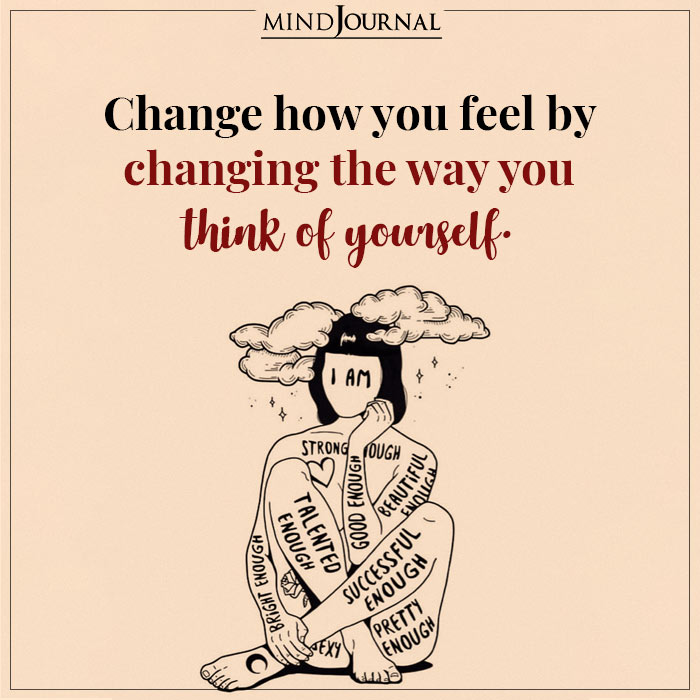
So, what do you think? Do people really change in their life? And if yes, what factors help them in the process? Do share your valuable feedback with us in the comment section.
Frequently Asked Questions –
What are the most obvious causes of change?
Self-awareness, a fear to lose a loved one, and prospects of a better future are some of the most obvious causes of change.
Does pain really change a person?
Painful life experiences can make a person develop unhealthy coping mechanisms and toxic behavioral patterns that might take considerable time and effort to resolve.
Why do friends change?
A loved one can change owing to several reasons, including their changing preferences, life situations, and emotion management.
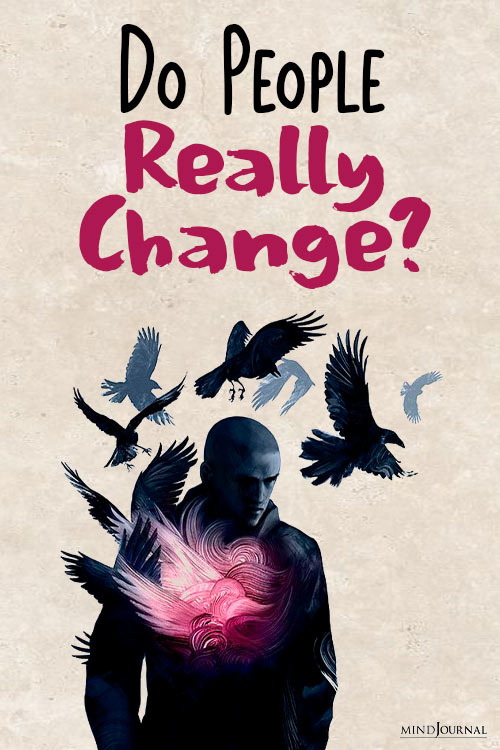

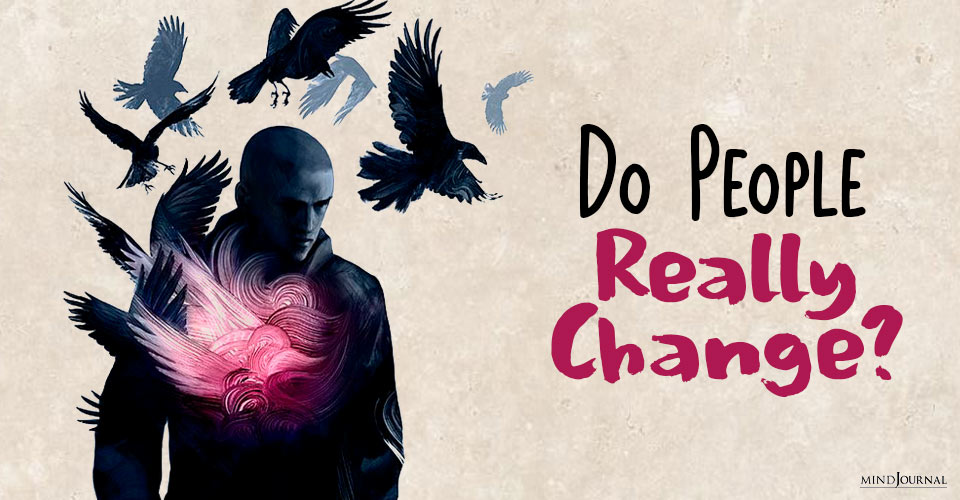







Leave a Reply
You must be logged in to post a comment.